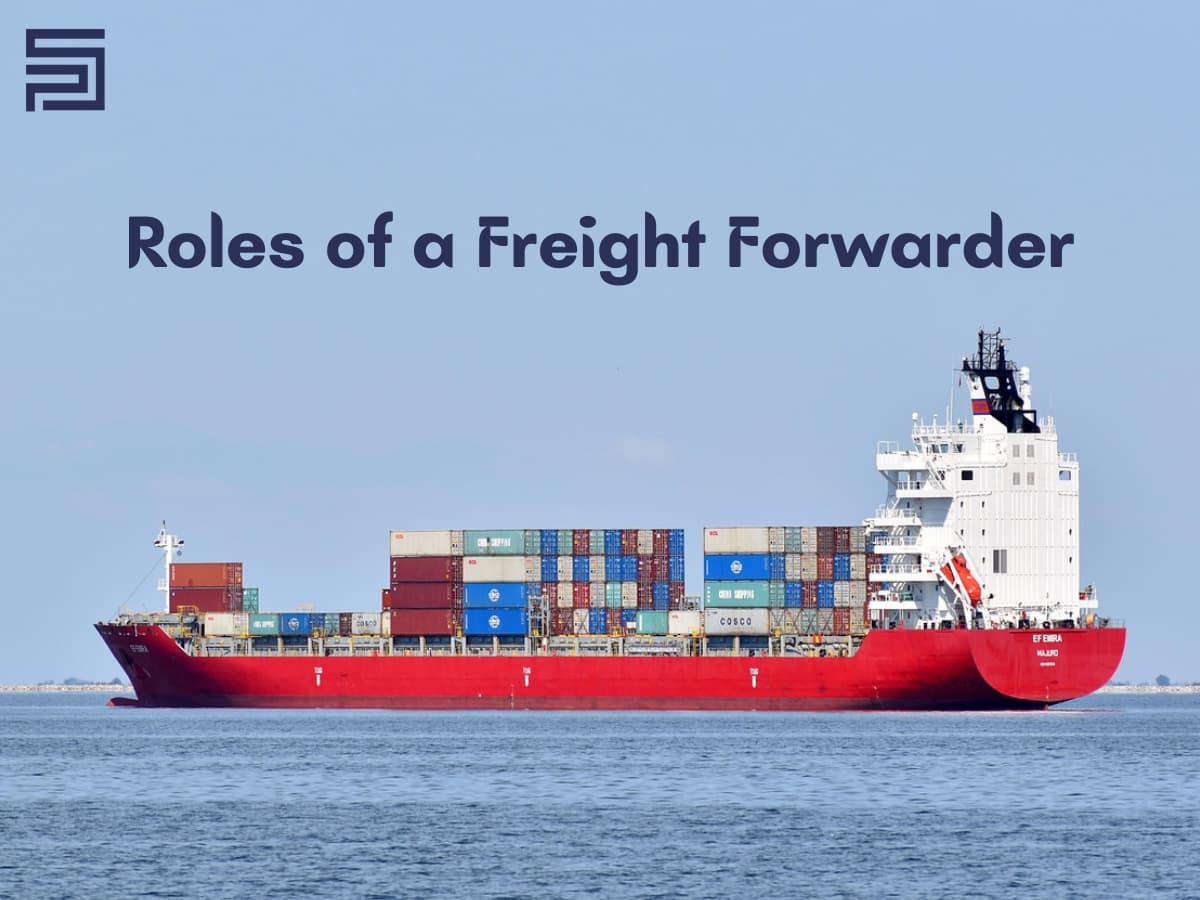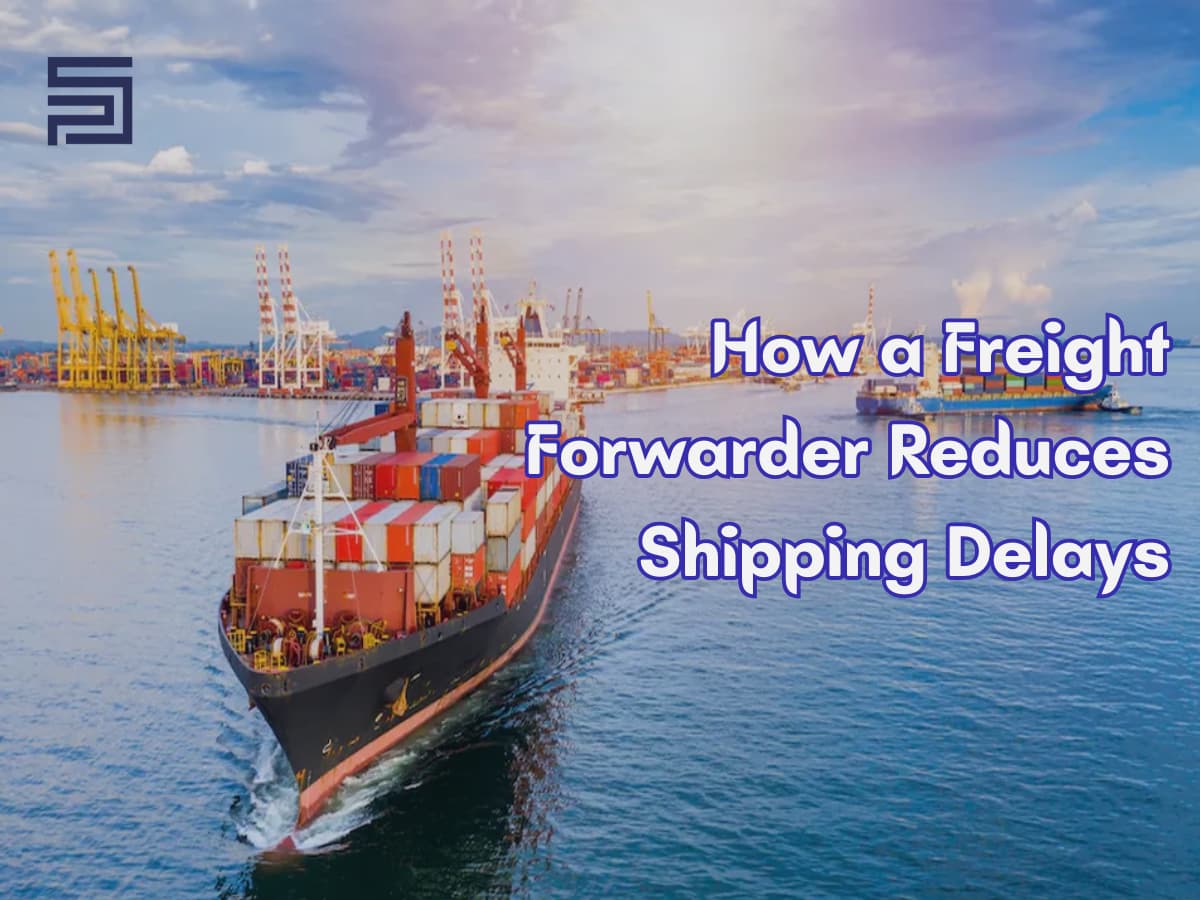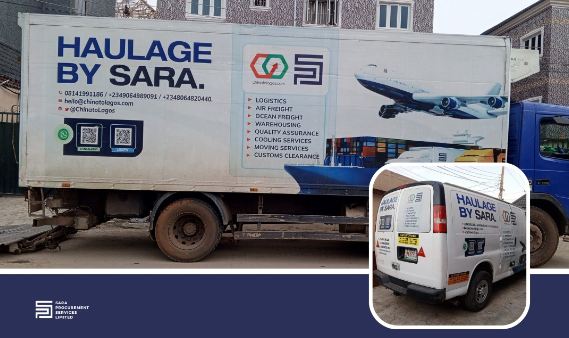A freight forwarder serves as your link to carriers, customs offices, logistics teams, and manufacturers. They handle every detail on your behalf so you don’t have to oversee the process. In this article, we’ll highlight the essential roles they play along the way.
Whether you’re evaluating a new provider or auditing your current one, the insights in this article will help you determine if your freight forwarder is delivering the full suite of services your business deserves.
Do you need the help of a trustworthy freight forwarder? Reach out to our experts at SARA, let’s get your shipment delivered.
6 Major Roles of Freight Forwarders
1. Coordination of Shipments:
The main job of a freight forwarder is to plan, execute, and oversee the movement of goods from origin to destination. To fulfil this responsibility for our clients, we perform a variety of tasks, including:
- Selecting the right transportation mode and route,
- Offering advice to the shipper,
- Negotiating rates,
- Selection of suitable packaging,
- Managing documentation,
- Scheduling and tracking shipments,
- Cargo consolidation,
- Insuring shipments, and so on.
A freight forwarder handles all the intricate details needed to coordinate the movement of a shipment and streamlines your logistics.
We’ll examine each of these details in turn as we proceed.
2. Negotiating Contracts and Rates:
Freight forwarders pool shipments from multiple clients to negotiate bulk discounts and preferential rates.
By aggregating volumes, they gain stronger bargaining power than an individual shipper would have alone, securing lower per‑unit costs for ocean freight, air cargo, trucking, and rail.
They also have relationships with major liners, niche regional operators, and intermodal partners and carriers, which allows them to compare multiple offers simultaneously, ensuring you get the best balance of price, transit time, and service reliability.
Forwarders bundle value‑added services, such as inland drayage, warehousing, and cargo insurance, into tailored contracts that clearly define service levels, transit commitments, demurrage/detention, and liability terms for a cost‑effective, comprehensive package.
3. Transportation Management:
Effective transportation management is at the heart of our team’s work at SARA, ensuring your cargo moves smoothly and cost‑efficiently from origin to destination.
One key strategy we employ is grouping smaller shipments into Full Container Loads (FCL) or Less‑than‑Container Loads (LCL) to maximise space utilisation and reduce per‑unit costs.
Leveraging our carrier partnerships, we can also secure the appropriate freight space based on your cargo’s size, weight, and urgency.
By analysing transit times, costs, and potential bottlenecks (like congested ports or seasonal weather), our freight forwarders craft the most efficient routing plans.
We usually factor in inland haulage connections, transhipment points, and delivery windows to meet your project timelines.
Forwarders prepare detailed load plans and coordinate the necessary transport documents, such as bills of lading, airway bills, and delivery orders, to avoid delays and penalties.
4. Insurance and Risk Management
Freight forwarders evaluate specific risks, such as theft, damage, or natural perils, and use this to customise insurance plans to your shipment’s unique needs.
They factor in your cargo type, transit duration, storage conditions, transport mode, cargo value, and route vulnerabilities to recommend appropriate coverage levels and avoid gaps in protection.
As a company with over 20+ years of experience, we leverage relationships with leading insurers and forwarders to obtain competitive insurance quotes that cover a range of scenarios, including all‑risk, named‑peril, and warehouse‑to‑warehouse policies, ensuring your goods are protected from door to door.
5. Documentation and Compliance:
Freight forwarders generate and manage essential paperwork, ensuring each document meets carrier and destination requirements.
They compile accurate customs filings, submit them to the appropriate authorities, and handle any follow‑up queries, accelerating clearance and avoiding costly demurrage.
At SARA, we stay up to date on evolving trade regulations, embargoes, sanctions, and industry standards and apply these rules to your shipments, securing any necessary permits, licenses, or inspections.
6. Customs Clearance Services:
Forwarders act as licensed customs brokers, preparing and submitting all necessary import/export paperwork on your behalf.
They accurately calculate applicable tariffs, duties, and taxes based on HS code classification and country‑specific regulations, so you know the exact landed cost before your goods arrive.
Forwarders handle the payment of duties and taxes to customs authorities and, when required, provide financial guarantees (such as bonds or letters of credit) to secure timely clearance.
If shipments face customs holdups due to inspections, missing paperwork, or compliance flags, the forwarder coordinates the swift resolution of issues. They supply the additional documentation, coordinating inspections, or negotiating release terms with the customs officers to minimise storage and demurrage costs.
Role of Freight Forwarder in Import
- Route & carrier selection.
- Customs documentation & clearance.
- Duties and taxes calculation.
- Cargo tracking & status updates.
- Inland transportation coordination.
- Warehousing & distribution.
- Risk management & insurance.
- Compliance advisory.
- Issue resolution.
Role of a Freight Forwarder in Export
- Export route & carrier selection.
- Export documentation preparation.
- Customs export clearance.
- Cargo consolidation & container stuffing.
- Freight booking & space reservation.
- Packaging & labelling coordination.
- Insurance placement.
- Export compliance advisory.
- Pre‑carriage & inland transport.
- Tracking & communication.
Role of a Freight Forwarder in Customs Clearance
- Regulatory expertise.
- Document preparation & submission.
- HS code classification & valuation.
- Tariff & duty calculation.
- Customs declarations & liaison.
- Payment coordination.
- Inspection & release management.
- Risk mitigation & compliance audits.
- Post‑clearance support.
The Role of Freight Forwarders in the Supply Chain
- Supply chain visibility.
- Inventory optimisation.
- Network design & connectivity.
- Cost control & consolidation
- Risk management
- Regulatory & compliance assurance
- Coordination of multiple stakeholders
- Technology integration
- Sustainability & optimisation initiatives
- Continuous improvement & analytics
The Role of Freight Forwarders in Logistics
- End‑to‑end coordination.
- Mode selection & optimisation.
- Warehouse & distribution management.
- Freight auditing & cost control.
- Technology & visibility tools.
- Performance KPIs & reporting.
- Custom solutions & value‑added services.
- Carrier relationship management.
- Problem‑solving & exception handling.
- Scalability & seasonal planning.
Benefits of using a freight forwarder for international shipping
Seeing all the roles that a freight forwarder shoulders for you, it is clear that working with them will take a lot of the logistical burden off you, so that you can focus on your core business activities.
The decision to work with forwarders like SARA means you are putting experts in charge of your business supply chain and inventory.
With SARA in charge, you have access to:
- Better rates with carriers.
- A wide range of partners, manufacturers and suppliers globally.
- Tailored insurance policies to protect your cargo
- Real‑time visibility on your shipment movement.
- Deep knowledge helps you avoid costly fines, delays, and compliance headaches.
- Customised service packages that include ease of international payment, warehousing, product sourcing, and more.
For more details on the benefits you stand to get by working with a freight forwarder, check out this article on the 7 major benefits.
Choosing the Right Freight Forwarder for Your Business
Entrusting a freight forwarder with your logistics is a delicate responsibility. Any misstep can ripple through and disrupt your entire business operation.
That’s why it’s crucial to choose your freight forwarder carefully and ensure your supply chain is entrusted to reliable, expert hands.
With over 20 years of industry experience, we’ve identified six key factors every business should consider when selecting a freight forwarder.
Click here to get the essential factors to weigh before selecting a freight forwarder.
Work with SARA as your Freight Forwarder
Partnering with SARA means more than just booking shipments; it’s gaining a dedicated logistics ally that understands your unique needs and tailors every solution to fit your business perfectly.
From your very first inquiry, our team takes the time to understand your unique shipping requirements, industry challenges, and growth objectives.
Our global network and local experts ensure smooth transit in key markets, including China, the USA, Nigeria, and Europe. Also, our online portal provides real-time visibility and direct access to our team.
Contact us today and let’s build a more resilient supply chain together.






Comments
Please log in to leave a comment.